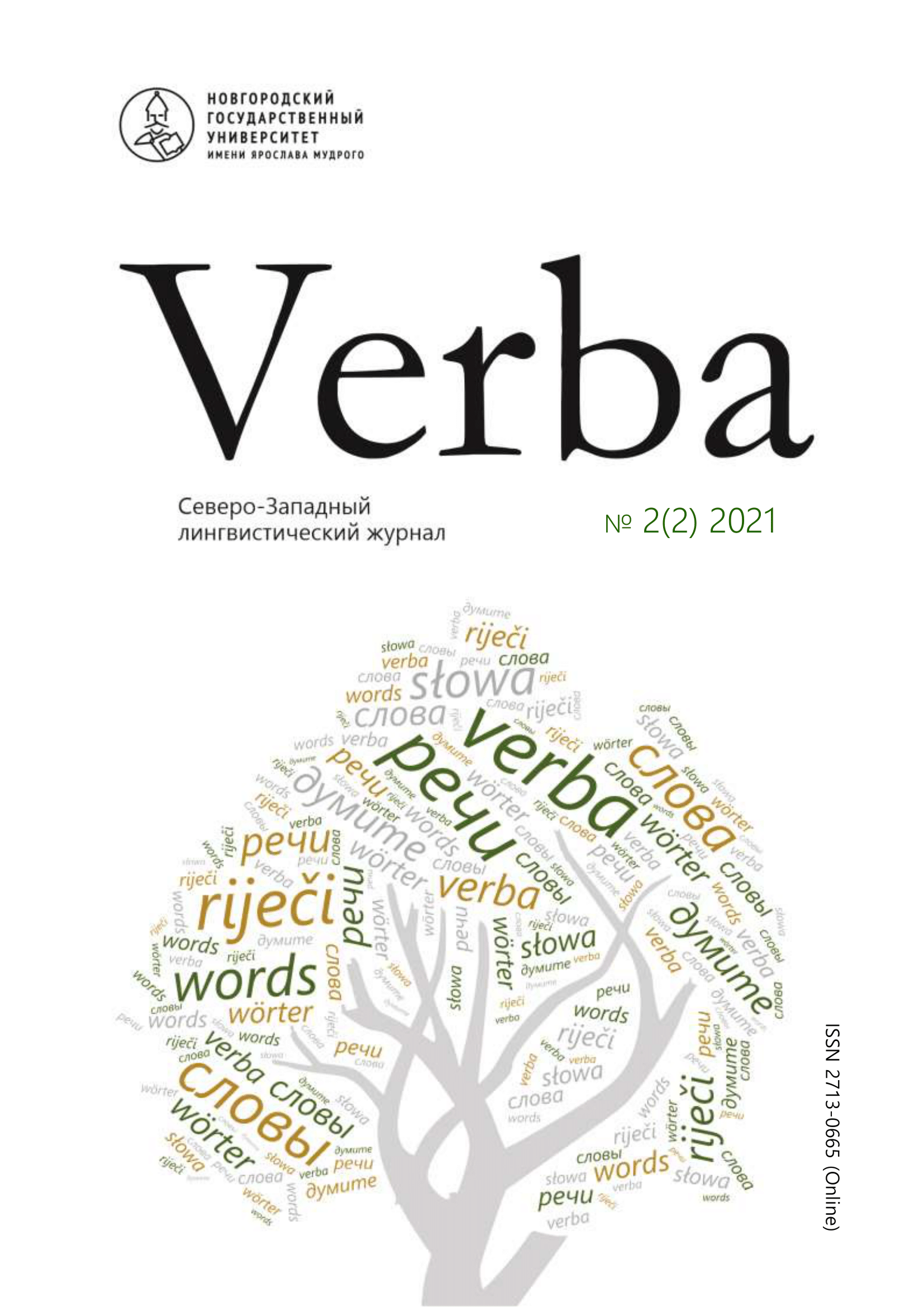Idiomaticity and Synonymy (based on Russian nouns)
DOI:
https://doi.org/10.34680/VERBA-2021-2(2)-56-64Keywords:
synonymy, idiomaticity, stable combination, phraseme, measure of associationAbstract
The article is devoted to the variability of collocations and phraseological units in the aspect of synonymic substitutions. In the Moscow semantic tradition fixed expressions are called phrasemes, which include idioms, collocations and quasiphrasemes. The relevance of the study is due to the fact that the language has a large number of combinations with varying degrees of stability, limit the possibility of synonymous substitutions. The research is, firstly, based on the Russian National Corpus data and use of special statistical indicators – measures of MI (Mutual Information) association, Dice, which establish the degree of the combination stability; secondly, on the results of the experiment on choosing a synonym in a utterance. 215 people took part in the experiment where they chose a synonym, most suitable for the context. 56 utterances containing combinations with varying degrees of stability have been selected for the experiment from the Russian National Corpus. The hypothesis of the research is that phrasemes with a high degree of stability do not allow synonymous substitutions. In general, the results of the research have confirmed this hypothesis. There is the dependence of the synonym choice on MI index for most of the utterances. However, Dice index is less predictive of choosing a synonym in the context. At the same time, it was not possible to determine the value of the MI and Dice indexes sufficient enough to predict the choice of a synonym. Interchangeability as a criterion for synonymy has a multifaceted nature: the choice of synonyms in an utterance is influenced by various factors associated with the general meaning of the utterance. The choice of a synonym depends on the direction of synonyms: in free combinations, the test subjects predominantly choose the dominant instead of the initial subdominant synonym.
Downloads
Downloads
Published
How to Cite
Issue
Section
License
Copyright (c) 2021 Verba

This work is licensed under a Creative Commons Attribution-NonCommercial 4.0 International License.








